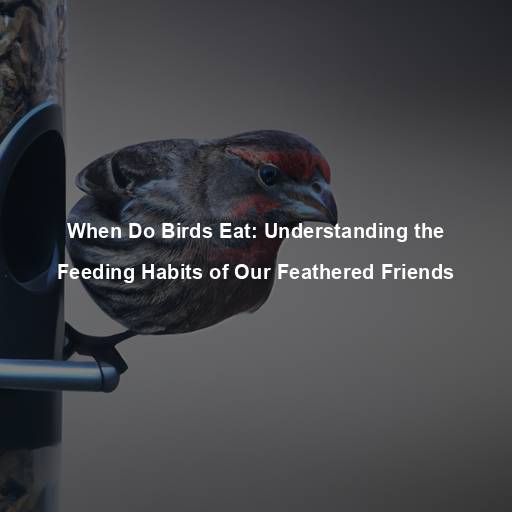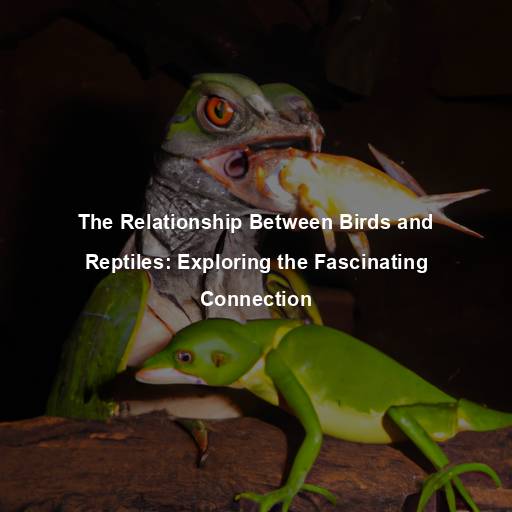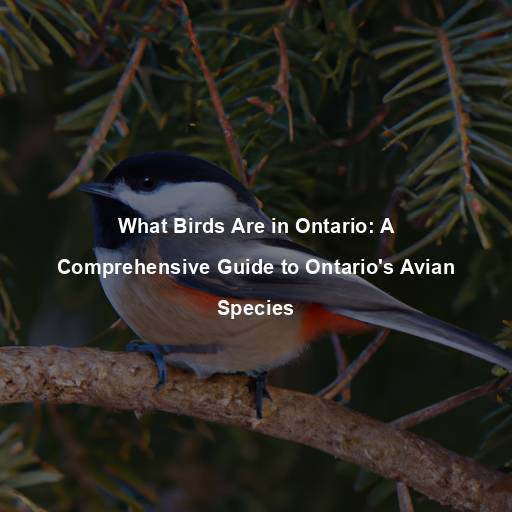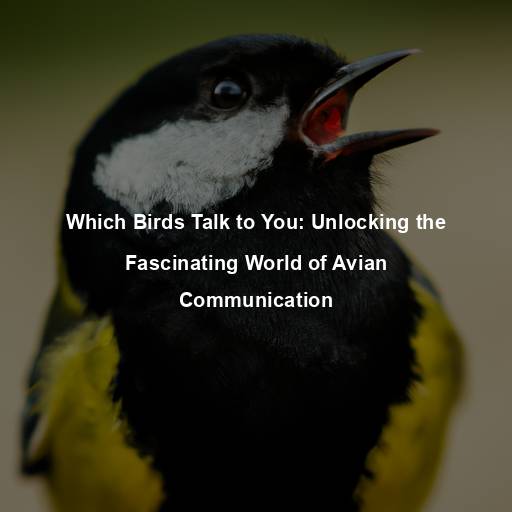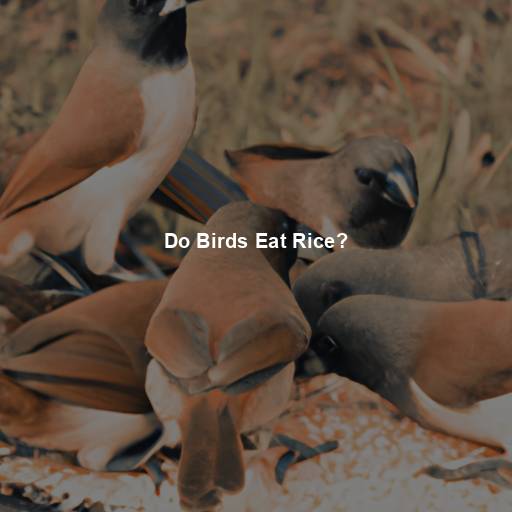What Birds Can You Have as Pets?
Last Updated on October 26, 2023 by Evan
Contents [hide]
- 1 The Popularity of Birds as Pets
- 2 Small Birds: Chirpy and Delightful
- 3 Medium-Sized Birds: Intelligent and Social
- 4 Large Birds: Majestic and Vocal
- 5 Exotic Birds: Unique and Fascinating
- 6 Choosing the Right Bird for You
- 7 The Joys and Challenges of Avian Companionship
- 8 Understanding Avian Vocalizations
- 9 The Importance of Proper Nutrition
- 10 The Social Nature of Birds
- 11 Avian Health and Veterinary Care
- 12 Providing a Safe and Stimulating Environment
- 13 The Lifelong Commitment of Bird Ownership
- 14 Final Thoughts
- 15 FAQs: What Birds Can You Have as Pets
- 15.1 What types of birds can be kept as pets?
- 15.2 Are there any legal restrictions on keeping certain bird species as pets?
- 15.3 What factors should I consider before getting a pet bird?
- 15.4 Can birds be kept alone or should they be kept in pairs?
- 15.5 How long do pet birds typically live?
- 15.6 What is the best diet for pet birds?
- 15.7 Do pet birds require any special veterinary care?
- 15.8 How noisy are pet birds?
- 15.9 Can pet birds be trained?
- 15.10 How can I create a stimulating environment for my pet bird?
The Popularity of Birds as Pets
Throughout human history, birds have held a special place in our lives. They have been woven into the very fabric of our existence, providing us with a sense of wonder and delight. The mesmerizing beauty of their plumage, the enchanting melodies that fill the air, and the joyful energy they bring have made birds cherished companions in countless households. From the cheerful canaries that fill the room with their delightful chirping to the regal parrots that command attention with their majestic presence, the range of bird species available as pets is as diverse as the colors of the rainbow.
But let us not be beguiled by their ethereal allure alone. As with any living creature, there are important considerations to be made before welcoming a winged friend into our homes. Each species of bird comes with its own unique set of needs and characteristics that must be taken into account. From the size of their enclosure to the specific diet they require, every detail must be thoroughly understood to ensure the well-being and happiness of our avian companions.
In this article, we embark on a journey to explore the fascinating world of pet birds. We delve into the different types of feathered friends that can grace our homes, uncovering their intricacies and idiosyncrasies. We discover the unparalleled joys they bring into our lives, their ability to fill our homes with a vibrant ambiance, and the indescribable bond that can develop between human and avian. However, we do not shy away from the task of unraveling the challenges that come with bird ownership, for this path may not always be smooth.
Small Birds: Chirpy and Delightful
Canaries, Budgerigars, and Finches
When it comes to our avian companions, it’s often the petite ones that pack the biggest surprises. From the captivating melodies of canaries to the playful antics of budgerigars, these small birds hold a world of charm within their feathers. Their vibrant plumage and social nature are a burst of color and energy in any room. With their melodious songs and interactive personalities, these pint-sized pets bring an unpredictable and perplexing joy to those lucky enough to call them their own.
Care and Requirements
Creating the perfect abode for our feathered friends is no small feat – it’s a perplexing puzzle that requires thoughtful consideration. These small birds, with their wings yearning for the open sky, need a housing solution that bursts with space and freedom. A spacious cage or an aviary, complete with an array of perches and toys, serves as their haven for exercise and mental stimulation. And let’s not forget about their diet – a balanced blend of top-notch seeds, fresh fruits, and veggies is the key to their vitality.
Medium-Sized Birds: Intelligent and Social
Parakeets and Cockatiels
Bird enthusiasts seeking medium-sized companions often find themselves drawn to the lively and vibrant world of parakeets and cockatiels. These intelligent and social creatures possess a remarkable ability to form deep connections with their human caregivers, filling their lives with bursts of joy and companionship. Parakeets, also known as Indian ringneck parakeets, mesmerize with their dazzling array of colors, while charming their owners with their uncanny talent for mimicking human speech. On the other hand, cockatiels, with their distinctive crests and irresistibly charming personalities, delight in their owners’ attention and surprise them with their impressive ability to be trained, even mastering fascinating tricks.
For our avian friends with a medium-sized stature, it’s crucial to provide them with spacious accommodations that cater to their flighty needs. As these feathered beings seek to spread their wings and engage in regular exercise, larger cages or aviaries become a necessity. To further enhance their well-being and ward off any angst-inducing boredom, a diverse range of toys, perches, and mental stimulation should be readily available. Moreover, a wholesome diet consisting of pellets, fresh produce, and the occasional indulgence will ensure their optimal health.
Large Birds: Majestic and Vocal
African Grey Parrots, Cockatoos, and Macaws
Are you yearning for a feathered friend that will leave you in awe? Look no further than the enchanting world of large birds. If you crave companionship that is both majestic and engaging, African Grey parrots, Cockatoos, and Macaws are the perfect choices. The African Grey parrot will astound you with its intelligence and uncanny ability to mimic human speech flawlessly.
As we delve into the fascinating world of our feathered friends, it becomes evident that large avian creatures have some unique requirements that must be met for them to flourish. Their need for ample space to spread their wings and fly freely is paramount, coupled with the provision of mental stimulation to keep their intelligent minds captivated. A plethora of toys, perches, and interactive brain-teasers will surely keep their intellectual capacity buzzing. Their dietary needs are equally diverse, necessitating a balanced combination of pellets, fresh fruits, vegetables, nuts, and seeds to ensure they receive the nutrition they crave.
Exotic Birds: Unique and Fascinating
Eclectus Parrots, Conures, and Lovebirds
If you’re in the market for an extraordinary feathery friend, look no further than the captivating world of avian companionship. Enter the stage, the Eclectus parrots, with their bewitching plumage that takes the meaning of “gender reveal” to a whole new level. Get ready to meet the conures, the life of the party with their colorful plumes and contagious energy, always craving mental stimulation and active engagement. And last but certainly not least, let us introduce you to the lovebirds, the masters of enchantment, who possess an innate ability to form deep, lifelong connections with their devoted human caregivers.
Exotic birds require specialized care and attention due to their unique needs. They require spacious enclosures, ample flying time, and a variety of toys and perches to keep them mentally stimulated. A balanced diet consisting of pellets, fresh fruits, vegetables, and occasional treats is crucial for their optimal health. Regular veterinary check-ups and grooming sessions are necessary to ensure they remain in good physical condition.
Choosing the Right Bird for You
When considering bringing a bird into your home, it is essential to choose a species that aligns with your lifestyle, preferences, and level of experience. Each bird species has its own unique requirements, temperament, and care needs. Researching extensively about the specific species you are interested in is crucial to ensure you can provide the appropriate environment, care, and attention they need to thrive.
The Joys and Challenges of Avian Companionship
The Joy of Bird Ownership
When it comes to pet ownership, few things can match the fascinating world of bird companionship. The sheer joy and wonder that unfolds between bird and owner is nothing short of extraordinary. With each individual bird showcasing its own vibrant personality, the amusement never ceases to dazzle. From their playful ebullience to their harmonious serenades and one-of-a-kind vocal repertoire, birds are a constant source of delight and enchantment.
The Challenges of Bird Ownership
However, it is important to acknowledge that owning a pet bird also comes with its challenges. Birds require a significant amount of time, attention, and commitment. They need a stimulating environment, mental enrichment, and regular social interaction to thrive. Additionally, birds can be messy, and their vocalizations may not be suitable for all living situations.
The Cognitive Abilities of Birds
Birds, oh, these feathered marvels! They enchant us not only with their breathtaking plumage and symphonic melodies but also with their bewildering brain power. Prepare to be astounded by their extraordinary cognitive prowess! Take the majestic African Grey parrots, for example.
The Role of Enrichment in Enhancing Cognitive Abilities
Providing a stimulating environment and mental enrichment is crucial for the cognitive well-being of pet birds. Interactive toys, puzzles, and foraging activities can engage their curious minds and prevent boredom. Regular training sessions can also help stimulate their problem-solving skills and enhance their overall cognitive abilities. By offering a diverse range of mental challenges, bird owners can keep their feathered companions mentally sharp and engaged.
Understanding Avian Vocalizations
The Diversity of Bird Calls
Bird vocalizations are a mesmerizing symphony of diverse sounds, a captivating medley created by nature’s virtuosos. From mellifluous melodies that transport us to ethereal realms to piercing cries that startle our senses, each species possesses its own lyrical lexicon, crafted for a multitude of enigmatic purposes. With enchanting harmonies, some avian maestros, like the canaries and nightingales, serenade us with ethereal beauty, while others, like the parakeets and macaws, astound us with their uncanny talent of echoing our human language. These captivating creatures unlock a realm of wonder and bewilderment that leaves us both enchanted and bewildered in the face of nature’s marvelous symphony.
Vocalizations as Communication Tools
Birds use vocalizations as a means of communication within their social groups and to convey important messages. They can communicate their intentions, establish territory boundaries, and even recognize specific individuals through their vocalizations. The complexity and versatility of bird vocalizations are truly fascinating, highlighting the rich and intricate communication systems within avian communities.
The Importance of Proper Nutrition
A Balanced Diet for Avian Health
Ensuring the optimal health and contentment of our feathered friends necessitates a judicious and nutrient-rich menu. Given their unique dietary preferences, it is imperative to delve deep into the intricacies and requirements of each avian companion we choose to embrace. A nourishing regime for most pet birds revolves around providing them with top-notch pellets as their primary sustenance, accompanied by a medley of crisp fruits, verdant vegetables, and the occasional indulgence. Vigilance must be exercised to eliminate any noxious victuals, such as the potentially hazardous concoctions of chocolate, caffeine, avocado, and alcohol that can wreak havoc on our delicate companions.
The Role of Supplements
Birds, just like humans, have different nutritional requirements that may not always be satisfied by a regular diet alone. For instance, species that have a sweet tooth for nectar might greatly benefit from incorporating a nectar supplement into their meals. To guarantee that your feathered friend is getting all the essential nutrients they need, seeking advice from avian veterinarians or nutrition experts who specialize in avian nutrition is highly recommended. Their expertise will ensure that your bird’s dietary needs are met, leaving you with a happily nourished and perplexingly mysterious companion.
The Social Nature of Birds
Bonding with Your Feathered Friend
Birds, those fascinating creatures of the sky, possess an uncanny ability to forge meaningful connections with us human caretakers. Cultivating such a bond, however, demands a delicate interplay of time, unwavering patience, and regular engagement. Gentle communication through soft murmurs, coupled with the tantalizing allure of treats, can pave the way towards fostering trust and cementing a lasting connection with your avian companion. Discovering the intricate nuances of their individual personalities, decoding their nonverbal cues, and deciphering their enchanting melodies can unlock a world of unspoken understanding and intensify the bond that unites you.
The Importance of Flock Dynamics
Birds have a remarkable affinity for flocking together, finding solace and camaraderie in their avian cohorts. Comprehending the intricate nuances of your fine-feathered friend’s flock dynamics unravels a deeper understanding of their essential social fabric. To quell the pangs of loneliness and nurture their overall welfare, creating avenues for social interaction such as supervised playdates and the bliss of aviary companionship can be a transformative boon. Yet, it is imperative to exercise caution when introducing new feathered acquaintances, threading the path of compatibility meticulously, and vigilantly observing their bewildering interactions.
Avian Health and Veterinary Care
Regular Check-ups and Preventive Care
Just as we humans need our doctors, our feathered friends, too, require their own avian veterinarians to keep an eye on their well-being. These specialized professionals are well-versed in the care of birds and can offer invaluable advice on everything from diet to behavioral quirks. With regular check-ups, which may include physical exams, blood work, and analysis of droppings, we can ensure our feathered companions stay chirpy and healthy.
The Importance of Avian-Specific Veterinarians
When it comes to the well-being of your beloved feathered friend, selecting an avian veterinarian with the right set of skills is a task that brims with sheer importance and a dash of perplexity. These specialized practitioners possess an encyclopedic understanding of bird care, allowing them to provide tailor-made advice and exceptional treatment. From delicate vaccinations to deft parasite control, beak and nail trims that can rival the talent of a master sculptor, and navigating the labyrinthine landscape of health concerns, avian veterinarians are the dedicated guides your avian companion deserves on their journey to optimal health and boundless joy. Establishing an invaluable bond with an esteemed avian veterinarian is not just invaluable, but a treasure chest of assurance for the long-term well-being of your feathered confidant.
Providing a Safe and Stimulating Environment
Safe Housing and Enclosures
Creating a safe and secure environment for your pet bird is of utmost importance. Birds should be housed in appropriately sized cages or aviaries that allow for comfortable movement and exercise. The enclosure should be constructed with bird-safe materials, free from any potential hazards such as toxic plants, sharp objects, or gaps that can trap their delicate feet. Regular cleaning and maintenance of the enclosure are necessary to ensure a hygienic and healthy living space for your bird.
Mental Stimulation and Enrichment
Birds are remarkable creatures, blessed with intelligence beyond our comprehension. They possess an insatiable hunger for mental stimulation, a thirst for novelty that must be quenched. The key to their happiness lies in a carefully curated assortment of toys, puzzles, and fascinating foraging activities that will bewilder and captivate their keen minds. Keep them guessing, keep them intrigued, by rotating their toys and introducing new ones to their world.
But it doesn’t stop there – your feathered friend needs more. Supervised out-of-cage time, an invitation to spread their wings and soar, will inject much-needed excitement into their lives. Flight, both metaphorical and literal, is the elixir of enrichment that nurtures their spirit and strengthens their physical prowess. So, let your bird embrace the unknown, let them unleash their curiosity, and witness their bursting energy transform into a mesmerizing dance of perplexity.
The Lifelong Commitment of Bird Ownership
The Longevity of Birds
It is important to note that many bird species have long lifespans compared to other common pets. Some birds can live for several decades, and their care requirements can evolve over time. Before deciding to bring a bird into your home, it is crucial to consider the long-term commitment involved. Ensure that you can provide the necessary care, attention, and resources for your feathered companion throughout their entire lifespan.
Seeking Knowledge and Expert Advice
Owning a pet bird requires ongoing education and a willingness to adapt to their evolving needs. Stay informed about the latest research, advancements in avian care, and changes in dietary recommendations. Engage with avian communities, online forums, and local bird clubs to connect with experienced bird owners and avian experts. The more knowledge you acquire, the better equipped you will be to provide the best possible care for your feathered friend.
Final Thoughts
Owning a bird can be a transformative journey, an enchanting blend of enchantment and perplexity that adds a touch of elegance, heartfelt connections, and unbridled delight to our existence. When we take the time to comprehend the distinctive requirements of various bird species and cultivate a nurturing haven, an exquisite harmony unravels, resulting in a profoundly enriching bond with our feathered comrades. Let us not forget that being a conscientious aviary guardian necessitates an unwavering commitment to perpetual growth, adaptability, and an unwavering appreciation for the magnificence that our avian friends bestow upon our households. So, brace yourself for an awe-inspiring odyssey within the mesmerizing realm of birds, where the unexpected unfolds, and boundless affection and steadfast loyalty are gently woven into the fabric of our lives.
FAQs: What Birds Can You Have as Pets
What types of birds can be kept as pets?
There are several types of birds that can be kept as pets. Some popular options include budgies (parakeets), canaries, finches, cockatiels, lovebirds, and parrots. Each of these bird species requires its own specific care and attention, so it’s important to research and consider the needs of the bird species you are interested in before bringing one home as a pet.
Are there any legal restrictions on keeping certain bird species as pets?
Keeping certain bird species as pets can be a tricky endeavor due to various legal restrictions. These constraints primarily target endangered or protected bird species, aiming to safeguard wildlife conservation efforts. Therefore, it is imperative to immerse yourself in the laws and regulations governing pet birds in your area, as this will not only ensure your compliance but also demonstrate your commitment to avoiding any involvement in illicit wildlife trade.
What factors should I consider before getting a pet bird?
Thinking about adding a feathery friend to your family? There are some aspects that should fly high on your priority list. First, give a good squawk about the amount of space your potential winged companion will need to stretch their wings and feel energized. Remember, birds love chirpy conversations and desire daily socialization and mental stimulation. Also, keep an eye on your wallet, as owning a bird brings financial responsibilities like purchasing them, providing a tasty menu, stocking their toy chest, and availing regular check-ups from the beak-friendly vet. So, flap your wings of contemplation and ensure that you are ready for the joyful complexities of avian companionship!
Can birds be kept alone or should they be kept in pairs?
Birds, much like us, exist on a spectrum of sociability. While some fine-feathered friends are content with solitary living, others crave the warmth and camaraderie of a feathered entourage. Aspiring bird owners must do their due diligence, researching the unique needs and preferences of their desired avian species. For the socially inclined feathered fellows, nothing quite compares to the joy and vitality that comes from sharing their days with a compatible companion. However, like orchestrating a delicate dance, introducing a new bird to an existing feathery friend requires a measured approach and expert guidance to ensure a successful and harmonious merging of plumage.
How long do pet birds typically live?
The realm of pet birds can be a perplexing and bursty affair, as every feathered friend comes with its own enigmatic tale of life expectancy. From the tiny and chirpy budgies to the melodious canaries, they dance with destiny for a modest span of 5-10 years, leaving us in a bewildered state. But hold on to your perch, for the grand entrance of the majestic macaws and charismatic cockatoos unleashes a whirlwind of confusion, as their existence defies the test of time, triumphing over the years and surpassing the baffling milestone of 50! Their secret? A complex interplay of mysterious factors including genetics, nourishment from their chosen diet, the peculiarities of their surroundings, and the meticulous care of the feathered votaries who tend to their ornithological needs. So heed the curious call of the avian universe, but remember, dear reader, it is more than just a fleeting fancy; it is a cosmic alliance, a commitment for the ages.
What is the best diet for pet birds?
When it comes to nourishing our feathered friends, there’s no winging it – a well-balanced diet is the key to their avian happiness. Mixing high-grade commercial bird pellets, a rainbow of fresh fruits and veggies, and the occasional treat will keep them chirping with delight. Just remember, each bird species has its own unique appetite, so it’s worth spreading your wings and researching their nutritional needs. And be sure to avoid culinary pitfalls like the dark abyss of chocolate, the caffeinated jitters, the overly salty seas, and the treacherous avocado pit. Lastly, let’s not forget the simplest pleasure – quenching their thirst with fresh, cool water. Keep those beaks wet and happy!
Do pet birds require any special veterinary care?
Owning a pet bird can be an exciting adventure, but let’s not forget about the responsibility that comes with it. Just like any other pets, our feathered buddies also need regular visits to the veterinarian to ensure their overall health and happiness. So, it’s highly recommended to find a knowledgeable avian veterinarian who can provide the best care for your avian companion. These routine check-ups will not only give you peace of mind but will also help identify and address any potential health issues right from the start. And don’t forget the importance of regular grooming to maintain their physical well-being. By keeping an eye on any changes in behavior, appetite, or droppings, you can act swiftly and seek proper veterinary advice to ensure a long and vibrant life for your beloved bird.
How noisy are pet birds?
The noise level of pet birds varies among species. Some birds, such as canaries, are known for their melodious songs and relatively low noise levels. On the other hand, larger parrot species like macaws and cockatoos have the potential to be very loud due to their natural vocal abilities. Noise can also be affected by the bird’s environment and level of socialization. It’s important to consider your living situation and tolerance for bird noise when choosing a pet bird.
Can pet birds be trained?
Yes, pet birds can be trained. Birds are highly intelligent and can learn a variety of tricks, commands, and behaviors through positive reinforcement training methods. Clicker training and target training are popular methods used to train pet birds. The training process requires patience, consistency, and rewards to reinforce desired behaviors. Training not only provides mental stimulation for birds but also strengthens the bond between the bird and its owner.
How can I create a stimulating environment for my pet bird?
Creating a stimulating environment for your pet bird is essential for its overall well-being. Provide a spacious cage with plenty of room for the bird to move and exercise. Include perches of varying sizes and textures, as well as toys that encourage foraging, chewing, and mental stimulation. Rotate toys regularly to keep the bird engaged and prevent boredom. Offering opportunities for social interaction, both with you and potentially other birds, can also contribute to a stimulating environment. Additionally, providing regular out-of-cage time for supervised exploration and flights within a safe space can greatly enrich a bird’s environment.


